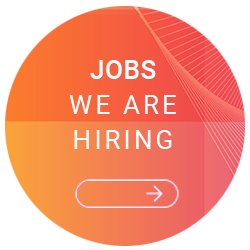A clear view of the funding jungle: First go-live of the Förderfinder Suite
Thanks to the new funding search, those interested in funding services can now find the right offers for them more quickly and easily. mgm supported the Free State of Bavaria and its project partners in the implementation of the One-for-All (EfA) software, which sets new standards for a modern and digitalized funding system.
eGovernment Readers’ Choice Award: mgm wins platinum in the consultant category for the fourth...
For the fourth year in a row, mgm has been honoured with one of the coveted awards in the consultant category. With the annual presentation of its prestigious award, the trade magazine eGovernment Computing from Vogel-IT honours exceptional achievements in the field of digital administration.
AI in public administration
Public authorities are under increasing pressure - on the one hand, there are high numbers of applications and recurring routine tasks and, on the other, a shortage of skilled workers as a result of demographic change. The use of artificial intelligence (AI) offers numerous opportunities to make administrative processes more efficient and user-centric.
Low code as a driver of digitalization in public administration?
Advancing digitalization is still a major challenge for public authorities: Numerous regulations must be complied with, various documents must be provided digitally and citizen data must be stored in compliance with data protection regulations. Local authorities often find themselves alone when it comes to implementation. This is precisely where the necessary expertise in the field of information technology is lacking. The result: a digitalization backlog. Low-code platforms offer a solution.
Podcast: How can we achieve end-to-end digitalisation in the OZG context?
The digitalisation of public administration in Germany is suffering from the fact that administrative processes and services are not fully digitally conceived, planned and implemented. One main reason for this is that a great many stakeholders are involved and – particularly in the OZG context – the municipalities as the implementing level have often not been sufficiently involved. So the question is: how do we achieve end-to-end digitalisation in Germany?
Comment: OZG 2.0 is coming. But is that enough?
The mediation procedure for the OZG has been decided and we finally have a settlement proposal. The digitalisation of public administration in Germany must now be driven forward quickly. However, a law alone is not enough. We need the genuine political will to adapt our state and its administration to the challenges of our time.
LMUDigitax: The Conference on the Digitisation of Tax Law – a Review
The LMUDigiTax conference on the digitisation of tax law at the Ludwig Maximilian University of Munich took place in mid-March for the third year in a row. This year, the focus was on the use of artificial intelligence (AI) in taxation, improvements in digital tax enforcement and the fully automated taxation of employees. As experts in the fields of tax digitisation and digitisation of legislation, mgm was there as a conference participant.
mgm at the Zukunftskongress Staat und Verwaltung – with a focus on low code,...
The Zukunftskongress Staat und Verwaltung will take place from June 24-26. At the leading event for digital Germany, which deals with the challenges and opportunities of digitalization and technological innovations in public administration, mgm is once again represented this year with three contributions on the topics of low code, OZG and register modernization.
eGovernment Readers’ Choice Awards 2024: Nominated in the Consultancy category
We are delighted to have once again been nominated for the eGovernment Readers' Choice Award in the Consultant category. Having already been honoured with the Platinum Award three times in a row, we naturally want to defend the title again this year. You can easily help us by voting for mgm in the Consultant category.
The OZG-Cloud sets new standards for the digitalisation of public administration
The digitalisation of public administration is rapidly gaining momentum in Schleswig-Holstein. With the OZG Cloud, the federal state has not only implemented an efficient tool for processing online applications without media discontinuity, but has also taken on a pioneering role in the nationwide digitalisation landscape.
















